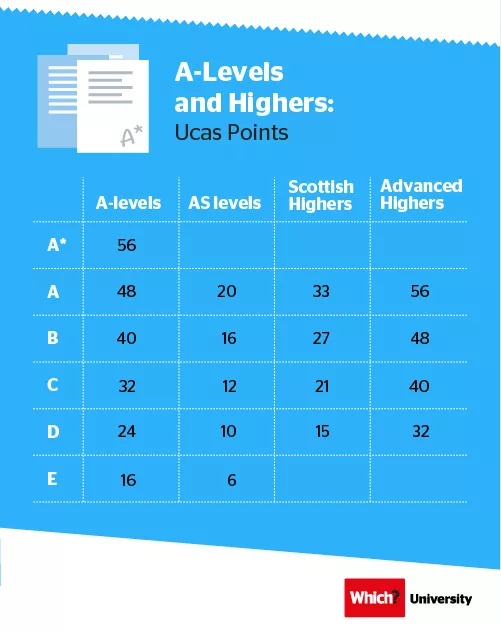If you’re considering A-level home schooling, you may be wondering where to start. This guide will provide you with all the information you need to make an informed decision, including curriculum options, exam preparation, UCAS consideration and tips for success.
Choose the Right Curriculum and Study Materials.
When it comes to A-level home schooling, there are a variety of curriculum options available. You may choose to follow a structured program provided by a home schooling organisation or online platform. Alternatively, you might prefer to create your own curriculum based on your child’s interests, strengths, and goals.
Choosing the right curriculum and study materials is crucial for A-level home schooling success. Thus, it’s very important to research and compare different options to find the best fit for your family: If you opt for a structured program, research different providers, and compare their offerings to find the best fit for your child’s learning style. On the other hand, if you prefer to create your own curriculum, you will need to consider a wider range of factors to make sure you cover all necessary subjects and exam requirements.

Regardless of your approach, investing in high-quality study materials is essential. Ensure to invest in top-of-the-range resources, as this will guarantee that your child is properly prepared for their exams. Look for textbooks, workbooks, and online resources that are up-to-date, comprehensive, and aligned with the A-level curriculums you require. With the right materials and curriculums, your child can excel in their studies and achieve their academic goals.
Understanding the A-Level Format and Assessment Structure.
Before diving into A-level home schooling, it’s crucial to understand the format and assessment structure, and how to quantify achievements to accomplish your goals. A-Levels are typically taken over a two-year period and consist of exams at the end of each year, although some subjects have modular exams at the end of the first and/or second terms. Such exams are incredibly significant as they contribute to the final grade achievement – many students end up having to re-take exams later on because they were unaware of the importance of these termly modular tests. Make sure you do not fall into this category – it will save you from extra pressure in your second year!
In terms of choices, students tend to select three or four subjects to study in depth, with each subject having its own set of exams and other assessments (see below). If you opt for your own curriculum, you must research the specific requirements for each subject, as well as the exam board, to be sure that you are properly prepared.

In addition to subject-specific exams, A-Levels also challenge students via a range of assessment methods, including coursework, practical assessments, and sometimes even oral exams (a certainty for language subjects). The weighting varies for each assessment method, for each subject, and also depending on the exam board.
Why is this so important? Remember that A-levels are taken as a stepping stone to qualify for a place at university, and it is the predicted grades that secure a place at your chosen institute (this is why it is so important to get satisfactory results in any early exams and assessments). You have the option to defer entry if the predicted grades are too low and then, later, reapply through the clearing scheme when your child receives their actual grades. For more information on clearing, see this resource.
Each A-level is graded on a scale from A* to E, with a grade of A* being the highest (There is also a U score which is technically the lowest score and means ‘ungraded’). The grades are worth UCAS points which are added together to make a total score. This scoring system was updated in 2017 and you will need to know how many total points are needed for every university course you apply for:
For example, if your child needs 144 points to make it onto their dream university course, they’ll need three A-level A grades. Of course, there are other study routes to gain entry to university and it changes with different qualifications – so if you get a triple distinction (DDD) for a BTEC diploma for instance, you’ll also get 144 points.
On top of this, each student must write a personal statement highlighting why they would like to study their chosen subject, why they have chosen a particular institute, and listing some personal background information. This is effectively a sales-pitch – a bid to convince the admission officers that they are worthy of a place.
Below you can see how A-levels translate into UCAS points, as well as AS-levels, Scottish Highers and Advanced Highers, courtesy of Which? University:

Sometimes universities will be flexible with scores, however with higher tier universities such as Oxford and Cambridge, they will tend to be uncompromising.
As you can see, understanding the curriculum and exam structure is crucial for successful A-level home schooling, as it allows you to thoughtfully choose the right university and course, and then plan and prepare for each subject and assessment method.
Create a Realistic Study Schedule. And Stick to It.
Creating a study schedule is crucial for and kind of home schooling. For A-levels it becomes even more imperative to get this right. A-levels are quite a big step up from GCSEs and a lot of students find it tricky to hit the ground running. On the other hand, some students start brilliantly and then fade away as the terms roll along. For this reason, we recommend making a realistic timetable from the get-go and punctuating it with plenty of time away from studies. This allows for knowledge consolidation as well as much needed rest to avoid burnout.

A solid timetable should help your child stay organized and focused, while ensuring they cover all necessary material before their exams. When creating the schedule, consider your child’s learning style and preferences. Some students may prefer to study in shorter, more frequent sessions, while others may prefer longer study sessions with breaks in between.
If your child has special needs like ADHD or dyslexia, A-level home schooling can be a real challenge, therefore they will tend to benefit more from the shorter work periods. It’s also important to consider any other commitments your child may have, such as part-time work, extracurricular activities, and any travel commitments. Regularly reviewing and adjusting the schedule ad hoc will make certain it remains effective and keeps your child on track for success.
Find Support and Resources for Exam Preparation.
The importance of exam preparation and mastering exam technique cannot be underestimated. Making use of past papers and their mark schemes helps to understand the key points when answering questions, so as to avoid waffling and wasting time. Timed practice exams and study guides can also be helpful tools, giving your child experience with watching the clock and tips and tricks for success, respectively.
One of the best ways to support your child’s exam preparation is to hire a tutor, join a study group or enrol them in an online course. These resources can provide additional instruction and practice opportunities that may not be available through your home schooling curriculum (more on this in the last section of this article).
It is essential to be on form when its official test-time, so make sure your child is well-rested and well-fed on exam day to guarantee they are in the best possible mindset. Moreover, throughout the entire process, don’t forget to provide emotional support and encouragement as this leads to boosted confidence and self-esteem. Students will always perform better when they are confident, fresh and feel ready – try not to introduce new ideas and knowledge too late as this can become a burden for the student in the run-in.
Consider Hiring a Tutor or Joining a Study Group.
A-level home schooling can indeed be challenging, especially when it comes to exam preparation. Hiring an experienced tutor or joining a study group can provide your child with essential added support and resources to help them succeed. Tutors not only provide one-on-one instruction and personalised feedback, they also identify specific weaknesses to address, and give valuable insight ahead of assessments.

Study groups, nonetheless, can offer a dynamic collaborative learning environment as well as the opportunity to discuss and review material with peers. Consider these options to supplement your child’s learning and improve their chances of success on exam day.
Online courses can also provide similar function to study groups, albeit from the comfort of your home. It is worthwhile to consider making use of all the aforementioned to give your child a broad range of study techniques. Furthermore, using a wide variety of options can open doors to otherwise inaccessible resources and assistance.
At Online Super Tutors, we offer tutoring services for both adults and kids in a variety of subjects: Whether you’re looking for help with A-level home schooling, want to improve your grades, get help with university applications, or simply want to learn something new, super tutoring can help. So why wait? Get in touch with us today and start your journey towards academic success!
Please see our Google reviews below as an example of what our clients feel about us:






